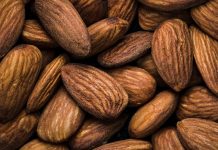
In a study from the University of Bologna and elsewhere, scientists found that drinking coffee helps maintain low blood pressure.
People who drink two or three cups of coffee a day have a lower blood pressure than those who drink just one cup or none at all.
Previous research has found that moderate coffee intake—about 2–5 cups a day—is linked to a lower likelihood of type 2 diabetes, heart disease, liver, and endometrial cancers, Parkinson’s disease, and depression.
It’s even possible that people who drink coffee can reduce their risk of early death.
Even though coffee drinking has been clearly linked to a number of benefits for heart health, its effect on blood pressure has not been fully understood.
In the current study, the team compared central and peripheral BP values in 720 men and 783 women. These people reported drinking different amounts of coffee each day.
The researchers found moderate coffee drinking was linked to either higher levels of systolic blood pressure (the upper number in the blood pressure reading) compared to those with heavy coffee drinking or lower systolic blood pressure than that in the non-coffee drinking group.
In particular, people who drank 2 cups of coffee per day and people who drank >3 cups per day had lower systolic blood pressure than non-coffee drinkers by 5.2 mmHg and 9.7 mmHg, respectively.
Similar trends were also found for peripheral pulse pressure, aortic blood pressure, and aortic pulse pressure.
Peripheral pulse pressure is the summation of the forward and the reflected waves.
Thus, pulse pressure depends on the stroke volume, the elasticity and diameter of the aorta, the pulse wave velocity, and effective reflective distance (distance from reflection points to the heart).
Central (aortic) systolic blood pressure (cSBP) is the pressure seen by the heart, the brain, and the kidneys.
Diastolic blood pressure is the minimum pressure experienced in the aorta when the heart is relaxing before ejecting blood into the aorta from the left ventricle (approximately 80 mmHg).
Based on the findings, the team concludes that regular coffee drinking is linked to lower systolic blood pressure, pulse pressure, aortic blood pressure, and aortic pulse pressure, but with similar arterial stiffness.
The study was conducted by Arrigo Cicero et al and published in the journal Nutrients.
If you care about high blood pressure, please read studies that drinking tea could help lower blood pressure, and early time-restricted eating could help improve blood pressure.
For more information about blood pressure, please see recent studies about added sugar in your diet linked to higher blood pressure, and results showing vitamin D could improve blood pressure in people with diabetes.
Copyright © 2023 Scientific Diet. All rights reserved.








